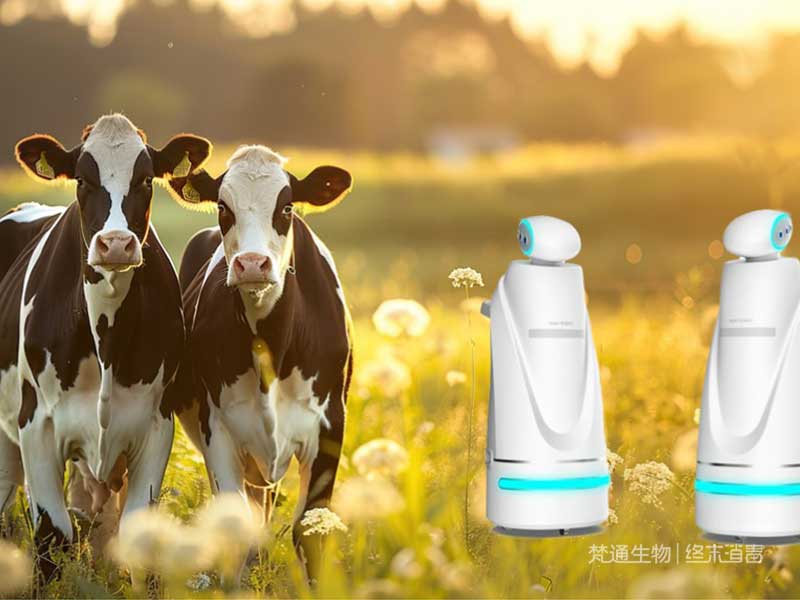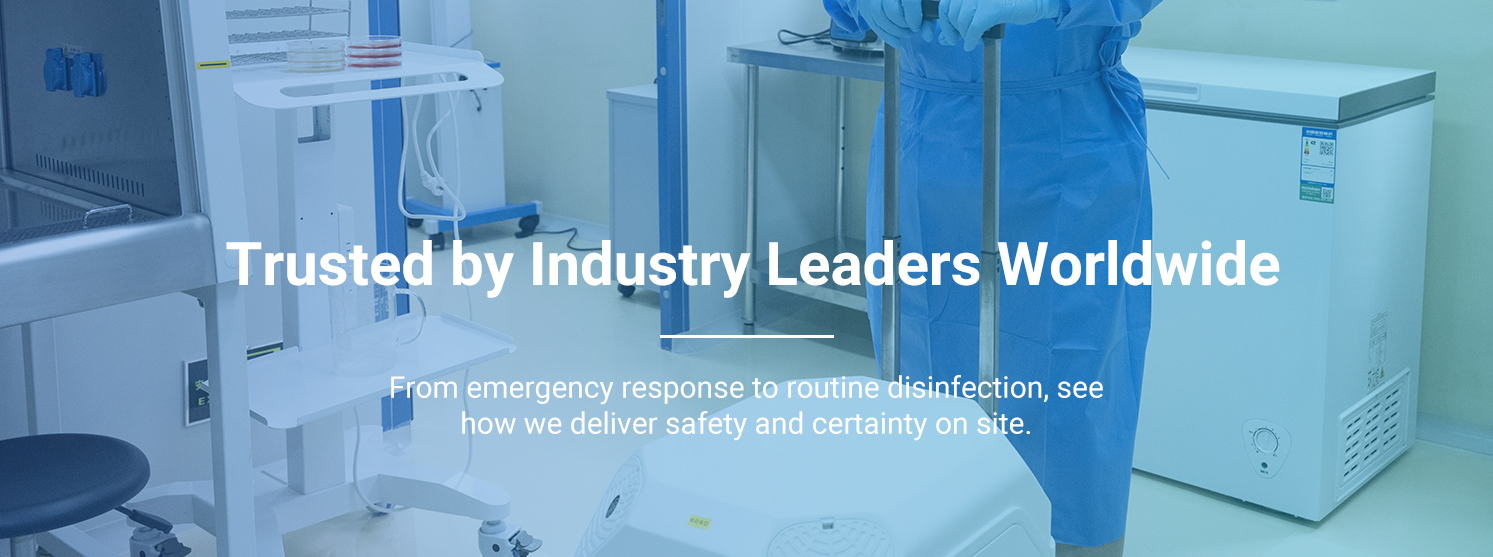Cattle farm disinfection services
- Addtime: 2025-07-25 / View: 203
In modern animal husbandry, environmental sanitation management of cattle farms is crucial. The spread of pathogens not only threatens the health of cattle, but may also affect the quality of milk and the health and safety of consumers. Therefore, from the calf island to the milking parlor, and then to the feed storage, disinfection work in every link cannot be ignored.
The calf island is a key environment for the growth of newborn calves. The sanitary conditions here are directly related to the establishment of calf immunity and early healthy growth. If there is bacterial contamination in this link, calves are susceptible to diseases such as diarrhea and respiratory infections, which seriously affect their growth and development and subsequent milk production performance.
As a place where dairy cows generate economic value every day, the milking parlor is the top priority of disinfection work. Incomplete disinfection can lead to outbreaks of infectious diseases such as mastitis, which can be transmitted to humans through milk, causing public health problems.
As for feed, it is the main substance consumed by cattle on a daily basis. Once contaminated, the consequences are disastrous. Contaminated feed may contain mold or other pathogenic microorganisms. Long-term consumption can cause digestive system diseases in cattle and even affect the quality of milk.
In the face of these potential risks, it is particularly important to adopt targeted disinfection technologies and equipment. Vaporized hydrogen peroxide disinfection technology is highly regarded for its high efficiency and broad-spectrum bactericidal properties. It can penetrate into every corner of the environment and kill a variety of microorganisms including bacteria, viruses, and fungi, and the decomposition products are only water and oxygen, which are harmless to the environment.
In addition, safe and environmentally friendly hydrogen peroxide disinfectant is also commonly used for daily disinfection. It can not only effectively clean and disinfect, but also will not cause harm to cattle or employees, nor will it corrode equipment, ensuring the safety and sustainability of disinfection work.
In short, by implementing strict disinfection measures, we can effectively control and prevent the spread of pathogens in cattle farms, ensure the health of cattle, and then ensure the quality of milk and the food safety of consumers. This is not only the responsibility of cattle farm operators, but also a commitment to the health of consumers.













